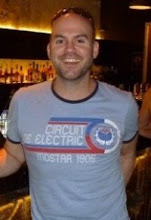 [And yes it is!]
[And yes it is!]I really enjoy reading Bill Bryson travel novels. I think its his laid back but intelligent approach to his subject(s) and to life in general. The first novel I read of his was The Lost Continent: Travels in Small-Town America - and loved the way he told of his travels in the USA, trying to find that fictional small town he grew up with when watching TV & movies in the 50's & 60's. Of course the hilarious thing is that the closest town he found that got to be looking and feeling like a real small town America was Provincetown! But I digress. A short history...continues his journey, but this time instead of travel its history [and what makes up everything in the universe] itself that is the journey dujour.
Mr Bryson goes back and forth in his novel trying to give an oversight of the universe that is older than anyone can say, bigger than anyone can think and more unknown than the...well unknown itself. From the creation of the planets and the mighty milky way to the tiniest of bacteria, from modern health sustaining life to nuclear bombs taking it, the Cro-Magnon man to the species that is modern man, let alone insects, dinosaurs and the stuff of life - the lot! Bill draws from papers, people and all sorts of paraphernalia to paint the picture of what is known, [and in most cases than we like to think so] unknown about virtually everything.
My love for this novel was the multiple subjects discussed and the way that we need to almost compact and change things so to suit circumstance rather than to accept that they just don't fit in a category. For example our solar system is always shown to suit text book page sizes so they fit all neatly, whereas the distance between the planets are so long that even reducing the earth to a pea on paper Jupiter is still 300 metres away...and you would need to standing in the next suburb to even get the chance to see Pluto! [Let alone if you make it real scale.] I also love the fact that when scientists and the so called 'people of knowledge' don't know, can't explain or find the missing links in history of life, they just make it up until someone knows, explains or find them [yes I'm not making that up either.]
Some of the subjects are not as interesting as others. While I found the solar system, universe and creation of the planets fascinating, I almost slept through the atom and elements chapter(s). However I am quick to point out it was only because it reminded me of high school chemistry lessons rather than the way Mr Bryson's places pen to the parchment [Mr Lee my chemistry teacher would be quite upset with me now] that sent me to sleepy by by's.
But saying this, the book is just a really great read about...well the title suggests everything. Mr Bryson did win the Descartes Prize and also Aventis Prize from the science world. Apparently some top scientist was supposed to say that the book is "annoyingly free of mistakes" - however a list of errors made by the book is online for those wanting to doubt him. It's a shame that scientists with all their brilliance get just as much fun disproving people and ideas rather than trying and finding new ones. Maybe they should focus more on endeavours to finding those bloody missing gaps rather than just making it up.
Regardless, you will be enlightened and enjoy this one.
Four big bangs of out five.




No comments:
Post a Comment